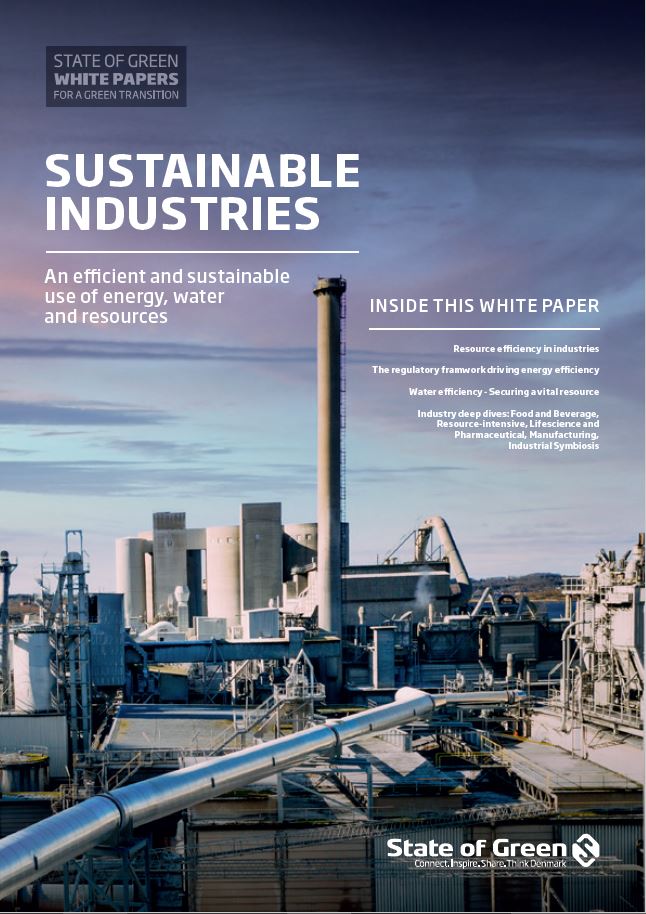Download our publication on sustainable industries
This article is part of our publication ‘Sustainable industries’.
Download nowPerspective
Industry


Energy efficiency is an essential part of any governmental strategy to guarantee sustainable economic growth. Denmark is a showcase for energy efficiency policies and instruments that can contribute to enhancing security of energy supply, to boosting competitiveness and welfare, and to reducing the environmental footprint of energy systems all over the world.
Efficient use of scarce resources such as energy
Energy efficiency will be an essential part of the green transition globally. This is also the case for the Danish energy system’s transition. Energy efficiency improvements will reduce the need for investments in new renewable energy capacity and energy infrastructure, as well as reducing the space required for new wind turbines and solar panels, thereby minimising the costs for society. Furthermore, energy efficiency improvements in the industrial sector (e.g. by minimising and utilising waste heat from industrial processes) may contribute substantially to the abatement of greenhouse
gases.
Energy policies in Denmark
Like all nations, energy efficiency policy in Denmark has been driven by a range of considerations over the years. Earlier, energy independence and national security of supply was a decisive factor, while greenhouse gas abatement and cost optimisation are currently in focus. More than 40 years of active energy efficiency policies in Denmark prove that decoupling economic growth from an increase in energy consumption is possible and that it is still possible to harvest low hanging fruits from conducting energy efficiency improvements. In industry, energy intensity has been reduced by more
than 60 per cent since 1975. High energy efficiency in production and operations enables a lower marginal cost, which supports the competitiveness of industries.
Different instruments and one shared goal
Energy efficiency policy can be divided into three different types of instruments.
An important lesson learned from the case of Danish energy efficiency policies is that a multipronged effort, with several instruments and mechanisms pursuing the same objective, could have the biggest impact in reducing the use of energy.

This article is part of our publication ‘Sustainable industries’.
Download nowSince 1996, the Danish Energy Agency has entered into agreements regarding the implementation of energy efficiency measures with large, energy-intensive companies in Denmark. To take part in the voluntary scheme, the company agrees to implement energy management and energy efficiency measures in their production. In return, a substantial portion of the energy consumption taxes they pay are reimbursed. The scheme has proven highly
successful in promoting energy efficiency improvements in industry and under the auspices of government-to-government cooperation, Denmark is now exporting best practices and knowledge about how to design a successful industrial mechanism for energy efficiency .
The Danish Energy Agency has gathered lessons learned for governmental action on energy efficiency in a policy toolkit. Please find the Policy Toolkit for Energy Efficiency in Industries here: https://ens.dk/sites/ens.dk/files/ Globalcooperation/ee_in_industries_toolkit.pdf